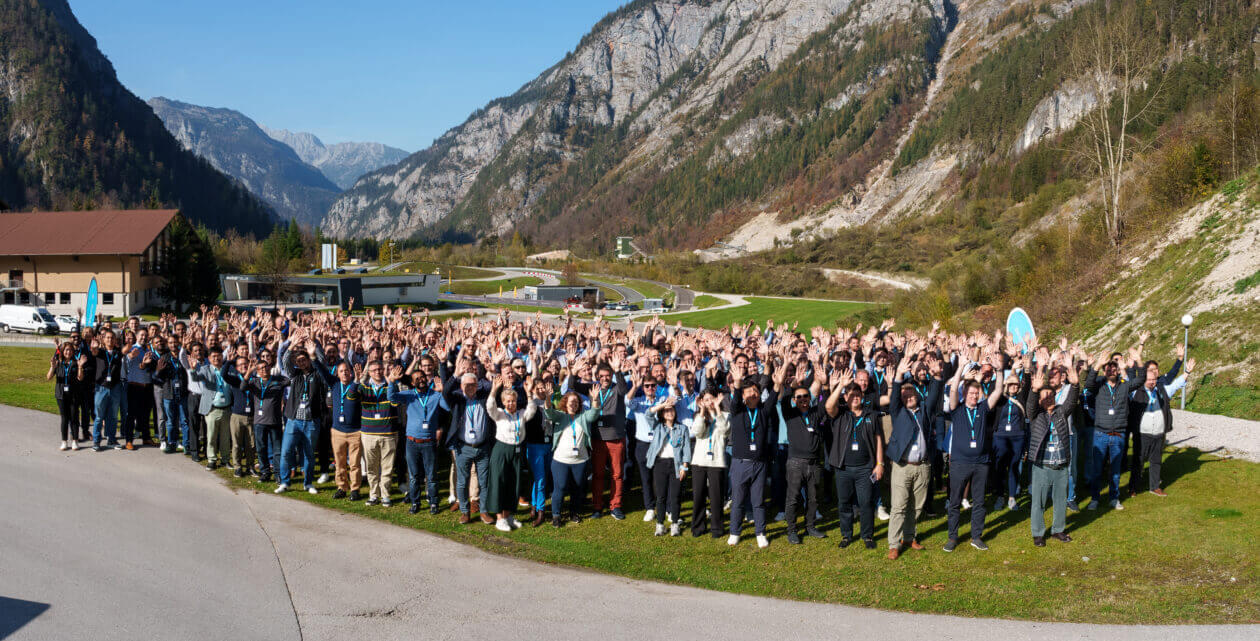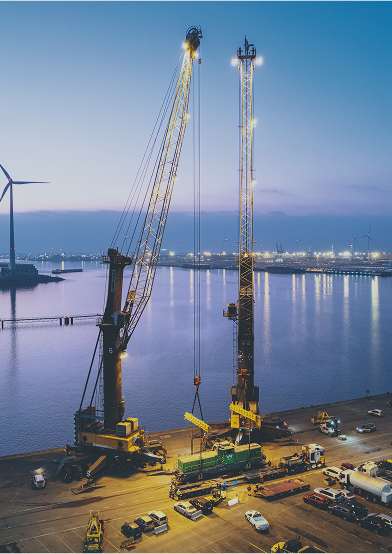What are we doing right now to make project logistics more sustainable?
At deugro, we move some of the world’s heaviest and most complex cargo across vast distances, and many of the industries we serve and the resources we transport are not yet “green.” That’s exactly why we believe it’s our responsibility to lead the way, step by step, toward a more sustainable future. We know we can’t change everything overnight, but we’re committed to focusing on what we can control.
Therefore, we take a holistic view on sustainability that includes environmental impact, social responsibility and strong governance. Here are some examples of how we’re putting that into action:
Environmental impact
We’ve enhanced our transport emissions calculations and are continuously working on the automatization of these, ensuring accurate data and alignment with international standards like the GLEC Framework.
In 2024, we increased the share of renewable energy used in our offices and warehouses from 10% to 23%, reducing our reliance on fossil fuels.
Together with Siemens Gamesa Renewable Energy and Amasus Offshore, we introduced two newly designed vessels, Rotra Futura and Rotra Horizon, optimized for transporting offshore wind turbine components.
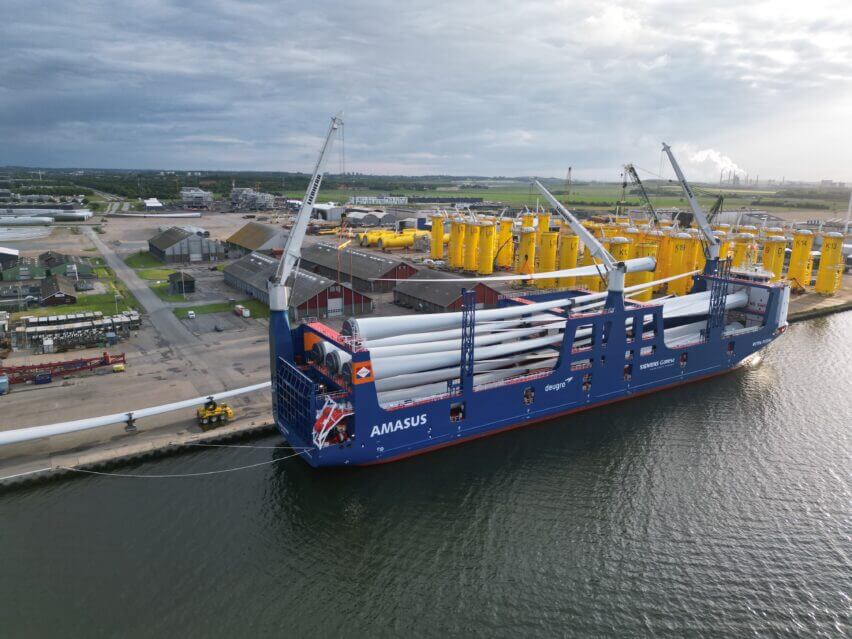
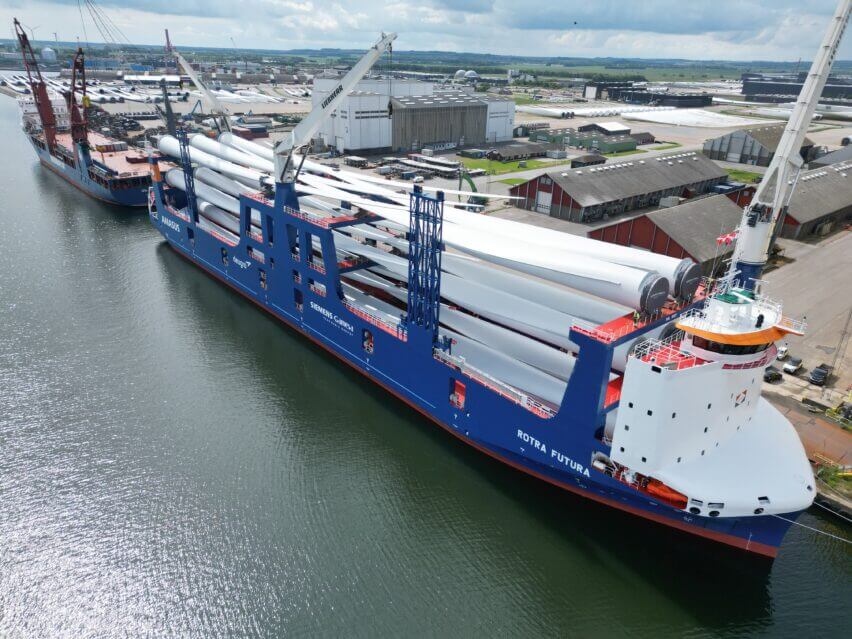
Social responsibility
We’ve launched a new Human Rights Policy to embed respect for human rights throughout our operations and value chain, complementing our Code of Ethics and Compliance.
We’re investing in DEI awareness and initiatives to foster a more inclusive workplace.
We continuously prioritize mental health and well-being, safety and continuous learning to support our people in every aspect of their professional journey.
Strong governance
With the ISO 37001 certification, we’ve strengthened our anti-bribery and corruption controls and maintain strict compliance and transparency.
Our SpeakUp whistleblower platform and anti-retaliation policy ensure that all stakeholders can report concerns safely and confidentially.
Although we’re already doing a lot, we know that we still have a way to go in some areas. We’re proud of the progress we’ve made, but there’s always more to do. That’s why we’re working on regularly evaluating our impact, refining our strategies, and exploring new ways to make project logistics more sustainable. Every improvement, no matter how small, brings us closer to a future where logistics and sustainability go hand in hand.
What changes have we already seen in the industry when it comes to sustainability?
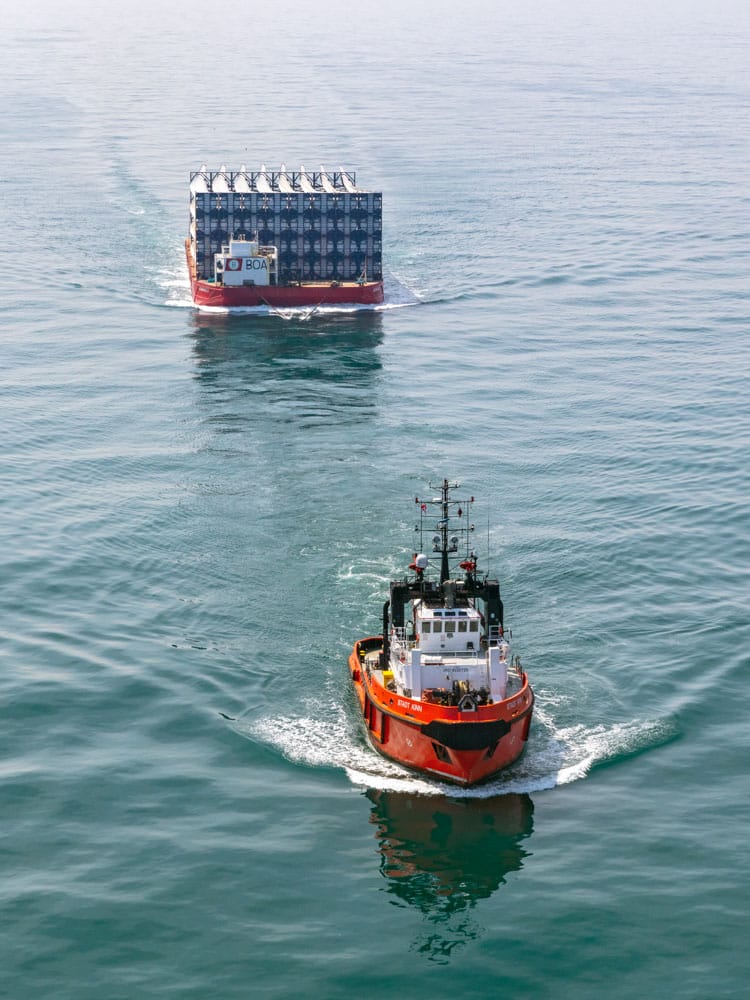 The logistics industry has made meaningful progress on sustainability, but the path forward is not always linear. In fact, we’re currently seeing a mixed picture: While many companies are developing their sustainability efforts, others are putting them on hold due to global uncertainties, shifting political priorities or economic pressures.
The logistics industry has made meaningful progress on sustainability, but the path forward is not always linear. In fact, we’re currently seeing a mixed picture: While many companies are developing their sustainability efforts, others are putting them on hold due to global uncertainties, shifting political priorities or economic pressures.
Despite this, the overall business trend continues to be growth in the demand for sustainability. We continue to see an increase in client requests for greater transparency and in expectations for sustainability data. This has driven us, and many others in the industry, to adopt emissions tracking tools, align with international standards, and improve data quality.
Regulation is another powerful force shaping the industry. In Europe, frameworks like the Corporate Sustainability Reporting Directive (CSRD) and the Supply Chain Due Diligence Directive (SCDDD) are setting new expectations for transparency and accountability. These regulations require companies to monitor not only environmental performance but also social and human rights issues across their supply chains. While there are ongoing discussions about narrowing the scope of these regulations, the direction is still clear: Sustainability is becoming a legal and reputational imperative.
Of course, the transition is especially complex in project logistics. Many of the sectors we serve, such as oil and gas or the mining industry, are still essential to the global economy. Our role is to support these clients responsibly while also helping them to explore and adopt greener alternatives. It’s not about choosing between progress and practicality—it’s about finding ways to do both.
In short, the logistics industry is evolving. The pace may vary, and the path may not always be smooth, but the direction is still clear. Sustainability can no longer be a side topic—it’s becoming central to how we operate and how we work together with our clients and partners.
What simple steps can we take to make our logistics projects more sustainable?
Sustainability in logistics is often seen as a challenge too big to tackle alone. And that’s exactly the point: We shouldn’t try to. The most powerful lever for making project logistics more sustainable is collaboration—within our teams, across departments, and especially throughout the entire value chain.
It is also about mindset and culture, which starts with transparency and shared responsibility. Many of the changes we need to make—whether it’s adopting new fuels, redesigning supply chains, or improving reporting—require investment and coordination. That’s why working hand in hand with clients, suppliers and business partners is essential.
While many solutions are complex, others are quite simple. Here are a few practical steps we are taking to make a difference:
- Learn from each other’s best practices
No one has all the answers, but many have valuable experience. Sharing what works is helping to accelerate progress across the industry—and knowledge-sharing is a low-cost, high-impact strategy.
- Increase renewable energy use in office spaces
Switching to green electricity is one of the easiest ways to reduce the operational footprint. At deugro, we’ve already increased our renewable energy share significantly, and we’re encouraging others to do the same.
- Rethink business travel
Not every meeting needs to take place in person. By embracing digital collaboration tools, we are reducing travel-related emissions without sacrificing connection or productivity.
- Raise awareness and train teams
Start to make sustainability part of the culture. Training employees to understand their impact and empowering them to act makes sustainability part of our everyday decision-making.
And looking at the transportation operations themselves: Of course, we can always look into the optimization of routes and loads. This often requires additional time and can be challenging, depending on the circumstances, but can have a really high positive impact on the environment.
Of course, regulatory requirements are also increasingly pushing companies to act, but real change comes from within. It’s about building a culture where sustainability is not just a checkbox, but a shared value.
At deugro, we’re on this journey, too. We’re learning, improving and evolving. And we know that even the smallest steps, when taken together, can lead to meaningful impact.
